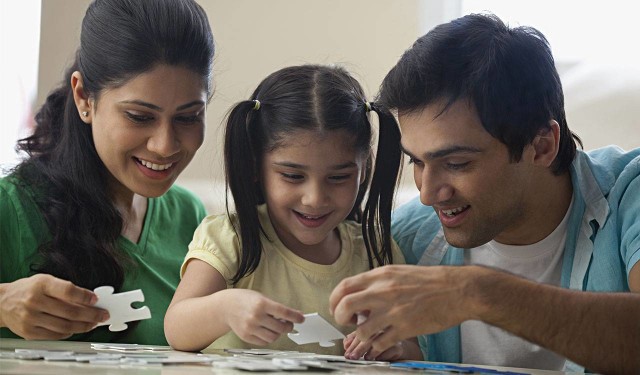
Parents lead by example, keep children engaged and cut screen time
With more and more people turning to electronic gadgets to keep themselves occupied during the government implemented lockdown and a plethora of media options at their disposal, it has become more important than ever to regulate the screen time, experts warn.

With more and more people turning to electronic gadgets to keep themselves occupied during the government implemented lockdown and a plethora of media options at their disposal, it has become more important than ever to regulate the screen time, experts warn.
For working parents who are busy juggling home and work duties in the absence of house help, often, handing out the smartphone with endless games or putting the kids in front of the computer or TV may seem like the ideal way to keep them engaged.
However, watch out, too much exposure to screen time comes with a set of challenges.
Dr V Jayanthini, child psychiatrist, said, given the existing addiction to gadgets and TV, the lockdown period has become more challenging for parents who do not want their children to be more dependent on them.
“This morning, I received a call from a parent who was distressed with her 11-year-old demanding a new smartphone for his games and was threatening to break the TV at home if his demands were not met. At least one in two parents who come for a consultation, on regular days, have a similar complaint – excessive addiction to gadgets and unregulated screen time,” she added.
Warning that premature exposure to screen time can cause developmental delays in children and hampers their growth, she said,” “Children pick up socials skills right from the time they are babies. Even though studies say there should be no exposure to screen time till they are two years old, I tell parents to avoid any exposure till three. For those between the age of three and five, it is best to avoid smartphones due to the radiation and blue light.”
Related news: In quarantine, the real challenge is combating anxiety
However, children can be allowed to see cartoons or animal shows on the big screen for an hour or so every day.
Irrespective of the age, children and their activities should be supervised, the Dr emphasised.
Why screen time is a big no-no
The biggest disadvantage of exposure to screen time to babies and toddlers is that it leaves no scope for communication.
Dr Prakash Boominathan, Professor and Head, Department of Speech-Language and Hearing Sciences, Sri Ramachandra Institute of Higher Education and Research, said, “Digital mode cuts of incidental learning, as it engulfs you completely. The chances of learning motor tasks by imitation and observing are also reduced as digital mode acts on only some facets of the brain compared to the real activities that can activate all your senses.
With exposure to screen time, it takes a lot of time to settle brain activity, and switching from one to another puts a lot of strain on the brain.”
Dr Boominathan also added that the mode makes children develop aggression.
The reinforcements (response from the other party) when the children are engaged in video games or smartphones are in the form of punches if they pick a wrong clue or answer, as against the real-time ones like a parent saying ‘good job’ or ‘well done’ which instills a better value in children.
Bring in non-screen activities
As the parents have more time with the children now that they are home, the boredom of the quarantine can be broken through a mix of activities, Dr Jayanthini said.
Related news: COVID-19: Counsellors reach out to the quarantined to alleviate fears
“I would say this is the best time to teach the kids about the vagaries of life — as we live in uncertain times — and since the children have been raised with a lot of comfort and protection. Parents should encourage them (children) to narrate stories, read books, and read out stories to their younger siblings and encourage them to play indoor games.
Make them sing along or allot some chores for them, according to their age. In between these, for school-going children, allot a few hours for academics — brushing up on language or mathematics. These will divert them from the screen,” Dr suggested.
As a word of caution, she also urged the parents to lead their children by example.
“If the parent is going to be hooked to the TV or the phone, they cannot expect the younger ones to not follow in their footsteps,” she warned.
Screen time limit as per age
Below 2 years: No screen time
Between 2 years and 5 years: One Hour every day
For those above five years, screen time should be viewed in terms of their sleep habits, food, and physical activity, connecting socially and using quality content.

